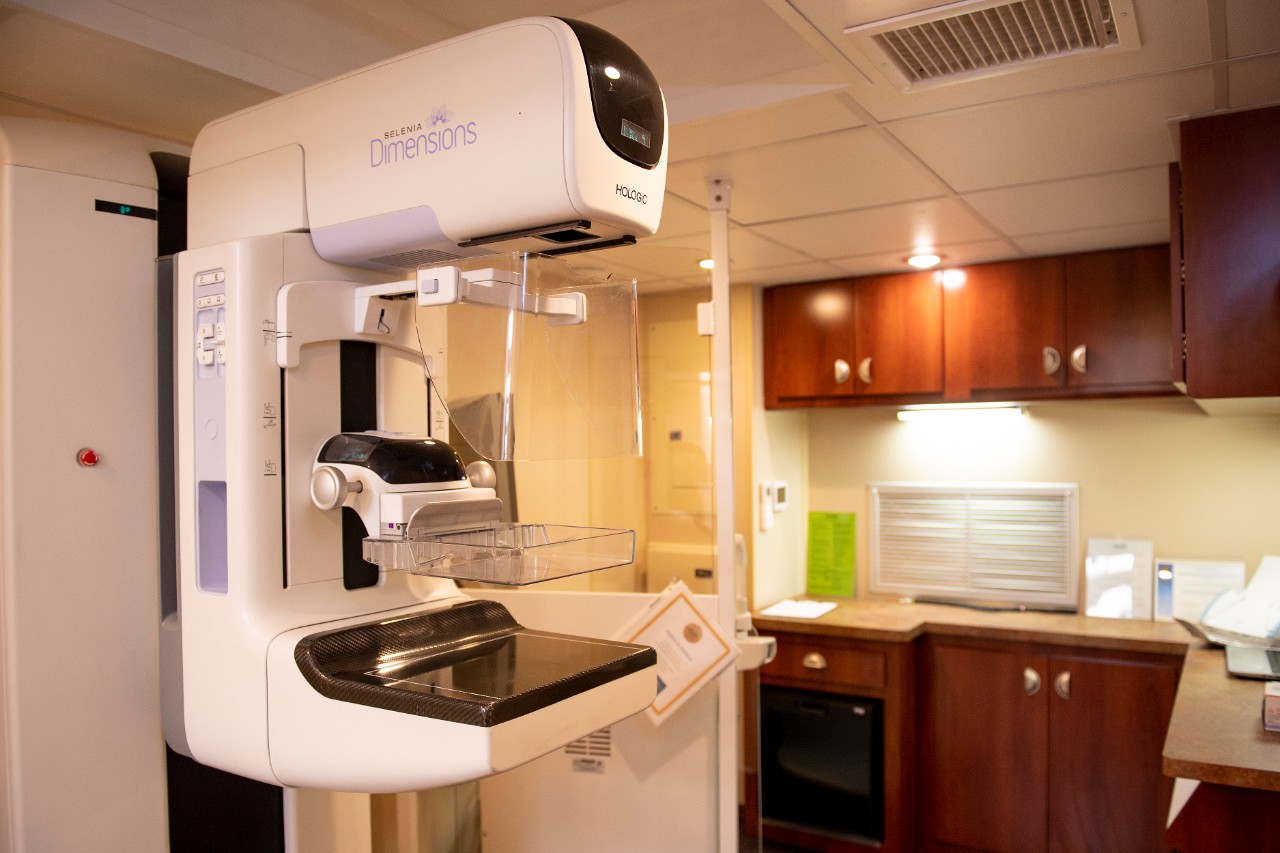
UC clinical trial compares effectiveness of 2D vs. 3D mammograms
Radiologists at the University of Cincinnati are offering a clinical trial comparing the two types of digital mammography available for breast cancer screening.
The randomized study, led locally by Lawrence Sobel, MD, assistant professor in the Department of Radiology at the UC College of Medicine and director of breast imaging for UC Health, will compare the use of 2D images to 3D images, known as tomosynthesis to determine that 3D tomosynthesis is more effective in the diagnosis of breast cancers.
“We are enrolling healthy women, ages 45 to 74, who are already planning to get routine mammograms,” Sobel says. “By taking part in the trial, the 165,000 planned participants nationally will provide critical information that will help researchers learn how to most effectively screen women for breast cancer and help women make informed decisions about screening tests in the future. This is the first, randomized trial to compare these two types of mammography; this study aims to confirm that 3D technology reduces a woman’s risk of developing an advanced cancer in comparison to 2D.”
Researchers are collecting data on the results of every mammogram, whether the imaging shows no sign of cancer, suspicious areas or a breast cancer, and medical follow-up, such as additional imaging or biopsies, is also being reported. Researchers involved in the study intend to follow all participants for breast cancer status, treatment and outcomes until the end of the study (at least until 2025). Most women enrolled in the trial undergo annual screening, but postmenopausal women with no high-risk factors will be screened every two years.
Sobel adds that researchers are also analyzing tissue collected from women who have biopsies during the trial, which will help in learning more about the biology of breast cancers detected through screening.
“In addition, the trial is building a biorepository for future research on genetic markers for breast cancer by asking all participants to voluntarily submit blood samples and swabs of cells from inside the mouth,” he says. “This data could, in the future, help women and their doctors decide the best ways to screen for breast cancer by evaluating their individual risk factors for developing the disease.
“We hope this trial will provide new insights into the way we screen for breast cancer to provide better outcomes for patients and prevent the disease in its earliest stages.”
*Photo of 3D mammography machine above/Credit: Colleen Kelley
Eligible women who are patients at UC Health and are due for a mammogram will be contacted shortly before their scheduled screening study to discuss possible enrollment. For more information, call 513-584-3135.
Related Stories
CCM Philharmonia presents concert + livestream on Feb. 20
February 18, 2026
Audiences can enjoy CCM Philharmonia's next concert in person or watch at home via livesteam at 7:30 p.m. on Friday, Feb. 20. Featuring alumni guest artists Rebecca Barnes, viola; and Jonathan Lee, cello; tickets for the "Midlife Crisis" concert are on sale now through the CCM Box Office. The livesteam is free to watch on CCM's website and YouTube channel.
From first-year uncertainty to a passion for land use law: meet Robby Belt
February 16, 2026
2L Robby Belt shares is story of learning to navigate law school.
UC students aim to expand methadone access to treat opioid use disorder
February 16, 2026
Spectrum News speaks with UC students Yara Chaouali and Selma Younes and UC Nursing Professor Rachel Baker about a proposal to expand methodone access to treat opioid use disorder.
